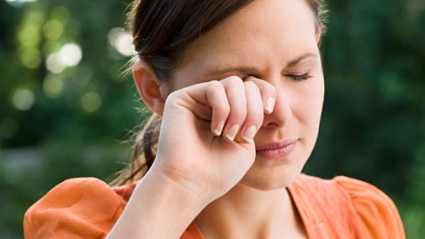Are eye drops the only way to treat Dry Eye Syndrome?

Dry eye syndrome (DES) is a complex condition that has many causes, and fortunately many treatment options. Most treatments revolve around topical eye drops, but for those of you that don’t like putting drops in your own eyes, there can be other options.
Omega-3’s
Studies have consistently shown that higher intake of Omega-3 fatty acids can significantly improve symptoms of DES. Our tears need oils to prevent them from evaporating too quickly, and Omega-3’s improve the function of the oil-producing glands (Meibomian glands) on the eyelids. On top of that, Omega-3’s have an anti-inflammatory effect to reduce the surface inflammation commonly associated with DES.
Hydration
It may be common sense, but we all could use more water intake in our daily lives. Keeping our bodies well-hydrated has an overall positive impact on our tear production, helping keep DES symptoms at bay.
Humidity
If you’ve flown recently, you can relate to this. The drier air in airplane cabins can sap the moisture away from your eyes easily. Any environment where the air is very dry (office, air-conditioned cars, extreme hot/cold weather, etc) can affect the comfort of our eyes. Many patients have found success in relieving their dry eye symptoms simply by adding a humidifier in their bedroom.
Eyelid Hygiene
Many patients can see dramatic improvement in their eye comfort by using specially designed eyelid washes to help keep the lids and lashes clean from excess bacteria. There are both prescription and over-the-counter options, depending on how severe your condition is.